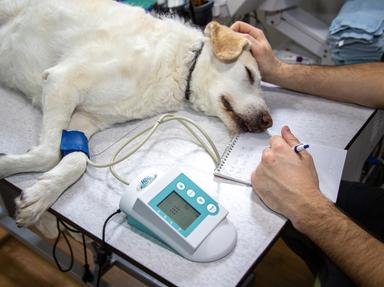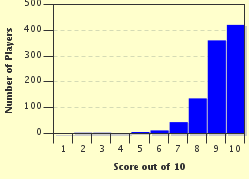Quiz Answer Key and Fun Facts
1. Your first patient is a standard poodle who is itching constantly and causing his skin to become inflamed and sore. Which of these is the likely cause?
2. This dog is showing all the classic symptoms of lungworm. He is most likely to have been snacking on what?
3. This dog has a sebaceous cyst on her belly. What advice do you give to the owner?
4. Your last patient before lunch has a yellowish tinge to her skin and the whites of her eyes. What is this symptom called?
5. During lunch a call comes in to say a dog is suffering from theobromine poisoning and is very ill. Which of these causes this illness?
6. Another case of poisoning comes in. This time the dog has accidentally eaten some rat poison, and needs to get it out of his system before the strychnine kicks in. Which of these might be used to induce vomiting?
7. This dog has inflamed, bleeding gums. It is most likely he has which of these?
8. The owner is worried about her dog twitching whilst asleep. What do you recommend her to do?
9. An Irish setter has Progressive Retinal Atrophy (PRA), which affects which part of the body?
10. Your canine patient is thirteen years old and is just coming in for a check up. Which of these health problems is NOT normally associated with old age?
Source: Author
pugzzzz
This quiz was reviewed by FunTrivia editor
gtho4 before going online.
Any errors found in FunTrivia content are routinely corrected through our feedback system.

